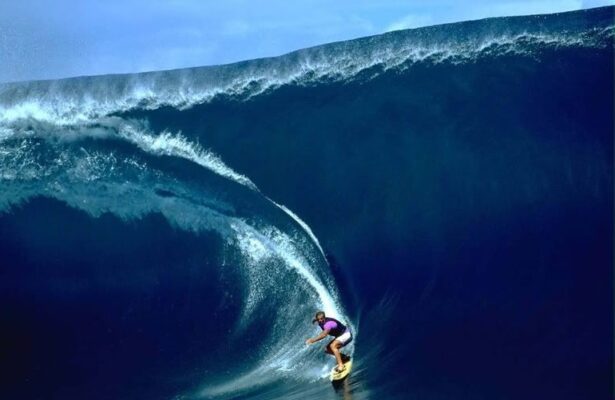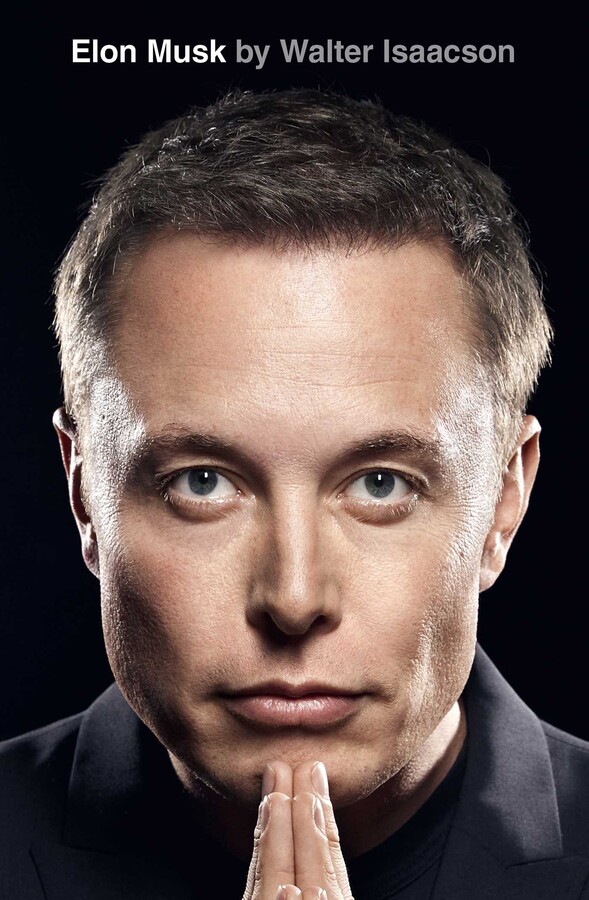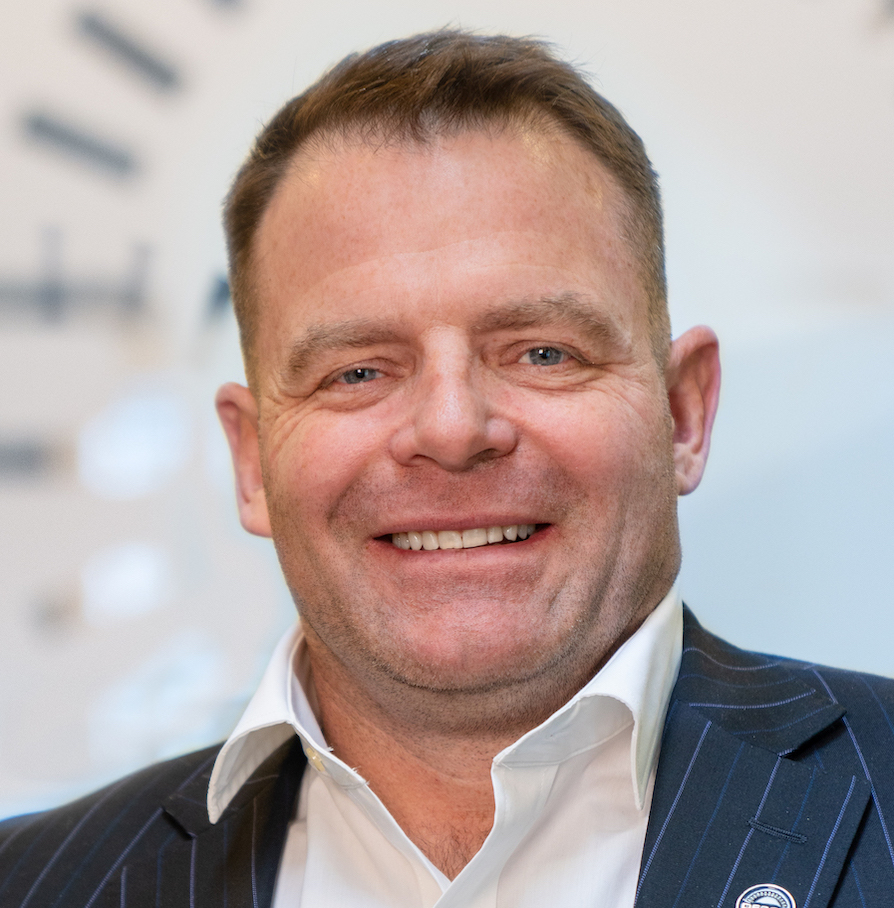2 minute read
Out Islands, Bahamas
“When the Competition Starts, the Art Stops.”
-Laird Hamilton
Competition with others is for Losers. Let’s be really honest with ourselves: competing with others is merely comparing ourselves with them.
As high-performing Entrepreneur Owner-Managers (EOMs), what do you achieve by competing with anyone? Competition or comparison has its roots in a world of scarcity. The entrepreneurial world is one of abundance.
Instead of comparing or competing, the best performing private business owners are almost always striving for an ideal or goal they set for themselves. Their goals are intrinsic, not extrinsic. They are almost never competing against others—why would they? They are striving to discover, unlock, and achieve their own peak potential.
EOMs frequently feel like outsiders in their families, communities, and industries; no one understands them except other top-performing EOMs like them. It’s great (and very rare, see Bigelow Forum) to be in a community (or even a room) with other EOMs who operate at the highest level because everyone “gets” what you are talking about. Virtually every EOM there has been through what you’ve been through; it’s all part of EOM life, it’s consistently inconsistent. In that EOM world it’s all about collaboration, there’s no competition. It’s constantly inspiring, and makes you want to do more and more cool stuff—not because you need more (or because others are doing it), but just because you keep discovering there is more and more cool stuff to unlock in yourself.
As a mass popular culture on the other hand, we are highly mimetic creatures. If we think we are in competition or comparison, then we are, and we copy what everyone else is doing. Inside a firm for example, team members can become obsessed with their competitors for so called advancement. Firms themselves (from the bureaucratic world) are utterly obsessed with competing in the marketplace. Social media. I don’t understand: why lose sight of what really matters to you (intrinsic), and squander your uniqueness by focusing on what matters to your rivals (extrinsic) instead?
Sadly, much so-called “expert advice” reflexively begins and ends with input on how to compete against others that you compare yourself against. If we are in competition, we copy everyone around us. Why? Don’t you ideally want to end up specializing in being…you? Who can compete with you if you are leveraging your authentic Unique Ability® (registered trademark of Strategic Coach)? Focusing on our authenticity naturally gets us away from competition. If you’re building and marketing something which is an extension of who you are, who can compete with you on that? Hey, who’s going to compete with Amanda Palmer in her creative domain? Instead, preferably, you specialize in being you. This is easiest to see in art, but entrepreneurs are heavy-duty creatives too (the businesses and products they create are usually highly authentic to their desires and means).
Laird Hamilton is widely regarded as the foremost big-wave surfer in the world. In addition to surfing the biggest waves, he is almost singlehandedly responsible for the current reinvention of stand-up paddle boarding, led the surfing community to foilboard surfing, and literally invented and developed tow-in surfing (in order to match the speed of the biggest waves). As an Entrepreneur Owner-Manager, Laird led his nutrition company Laird Superfood to the public market (NYSE: LSM). Yet, he has never, and will never, enter surfing competitions. When I asked him why he doesn’t compete in surfing, he said, “Pete, I never enter any surfing or any other competitions. Because when the competition starts… the art stops. I am not out to compete against other surfers. And I would never try to compete with Mother Nature. I am simply discovering and trying to unlock my own potential out in Mother Nature. I don’t fully know what my potential is yet.”
James Carse’s classic book Finite or Infinite Games (2013) defines two kinds of contests. The book is basically about competition (finite games) vs. cooperation (infinite games), written in plain English without over-reliance on mathematics or complex game theory. Highly recommend. His position is that a finite game is played for the purpose of winning, an infinite game for the purpose of continuing to play. What’s your time frame in life? I am likely dating myself, but isn’t the classic parlor game called The Game of Life…. perhaps The Infinite Game of Life would have been more apropos.
One of the things that illustrates the uselessness of win-lose competition or comparison is when the “currency” is “status.” For example, that’s the currency that politicians and academics and celebrities and…EOMs who compete… trade in. It’s a zero-sum game where for me to be higher status than you, you have to be lower status than me or vice versa. To win in tennis playing against me, you must beat me. What a tragedy that to be your best or to unlock your unique potential, you believe you must compete or beat someone else? The real danger of status games or other finite games is that it may be that we end up competing for something that we didn’t want. We may not realize until later that we were trapped into competing—and we didn’t want to win the game anyway.
So, when you learn you want to go beyond compete or compare, what can you do? Unique Ability is one of those things that can be learned, but not taught. Certainly not by competing or comparing. Find some quiet, and try to answer these questions: Where do you bring the most value? What are you passionate about or better… wired for? Where can you have an economic model that is self-sustaining? You don’t have to compete with others. Authenticity naturally gets you away from competition. Ideally you want to end up specializing in being you.
In the Entrepreneurial Economy, the masses are never right. No matter what you learned on the kickball court, competitive rivalry isn’t merely a good-humored contest. It’s poison. Poison to creativity, poison to discovering your Unique Ability, poison to Subjective Well-Being. Comparison of ourselves versus others causes us to emphasize old historical dogma and slavishly copy what has worked in the past.
Is what makes the highest-performing Entrepreneur Owner-Managers born or learned? We don’t know. But we know this: you can work on your mindset every single day.
The competition or comparison mindset has its roots in a world of scarcity. But, as EOMS, do we “get” we are in a world of abundance? So again, why not specialize in being you.
"Comparison is the thief of joy."
–Theodore Roosevelt
What I am Reading / Listening to
Elon Musk (2023)
By Walter Isaacson
I devoured the biography of Elon Musk by Walter Isaacson over a two-to-three-day period. Because all of my work is with Entrepreneur Owner-Managers, and Elon is the uber EOM, there are lots of learnings and un-learnings about Elon (and about EOMs) from this work.
Elon is currently running six companies with Sam Altman, co-founder of OpenAI (which he has since backed away from): Tesla, SpaceX and its Starlink unit, X Corp (formerly known as Twitter), The Boring Company, Neuralink, and xAI Corp. How does he generate and allocate the energy it takes to lead these enterprises?
The book is laid out chronologically, chapter by chapter from Elon’s childhood to the present. You don’t have to be a psychologist, only situationally aware, to realize that much of Elon’s behavior (not what he says, but how he behaves) is a function of childhood trauma—some big “T” Trauma, and plenty of small “t” trauma.
I am not a huge Isaacson cheerleader because I find that his bias finds its way into his writing. For example in his book, Steve Jobs (2021), I found that he could not conceal his dislike of Jobs and it hurt the effectiveness of the writing. In this case, I found it mostly well done. Evidently, he was given open access to Elon for two years. Yet, as expected, Elon is a moving target, he’s only in his early 50’s, just hitting his stride, and naturally his story continues to unfold. But Isaacson does a good job with the story thus far. Elon critics need not worry-- the book definitely does not blindly worship at the altar of some engineering marvel, and it’s not merely a slam of the world’s richest person.
What emerges is a portrait of a flawed human, whose identity stems from his work. You can’t escape the conclusion he works excessively hard, demands a lot of others around him, and has created some massively world changing enterprises. He struggles mightily and exhaustingly with interpersonal relationships and family. Elon loves his family, but he also is clearly willing to disregard them to work, sleep, eat and breathe the world changing projects that he wholeheartedly throws himself into.
Maybe readers will achieve the most understanding of Elon from his own words. As he said in his SNL monologue, “To anyone I’ve offended, I just wanted to say, I reinvented electric cars and I’m sending people to Mars on a rocket ship. Did you think I was also going to be a chill, normal dude?”
Entrepreneur Owner-Manager Quote
"We have worked hard to position our company to do bigger and better things for years to come, and joining forces with Comfort Systems USA creates the perfect partnership for DECCO’s growth. Our search began in finding a partner that shared our CORE VALUES—Partnership, Excellence, Ethics, Commitment, and Servant Leadership—and we are excited for the future and for what we can offer our clients as we look to create opportunities for our partners and expanded services for our clients.”
© 2024 Bigelow LLC. All rights reserved.



